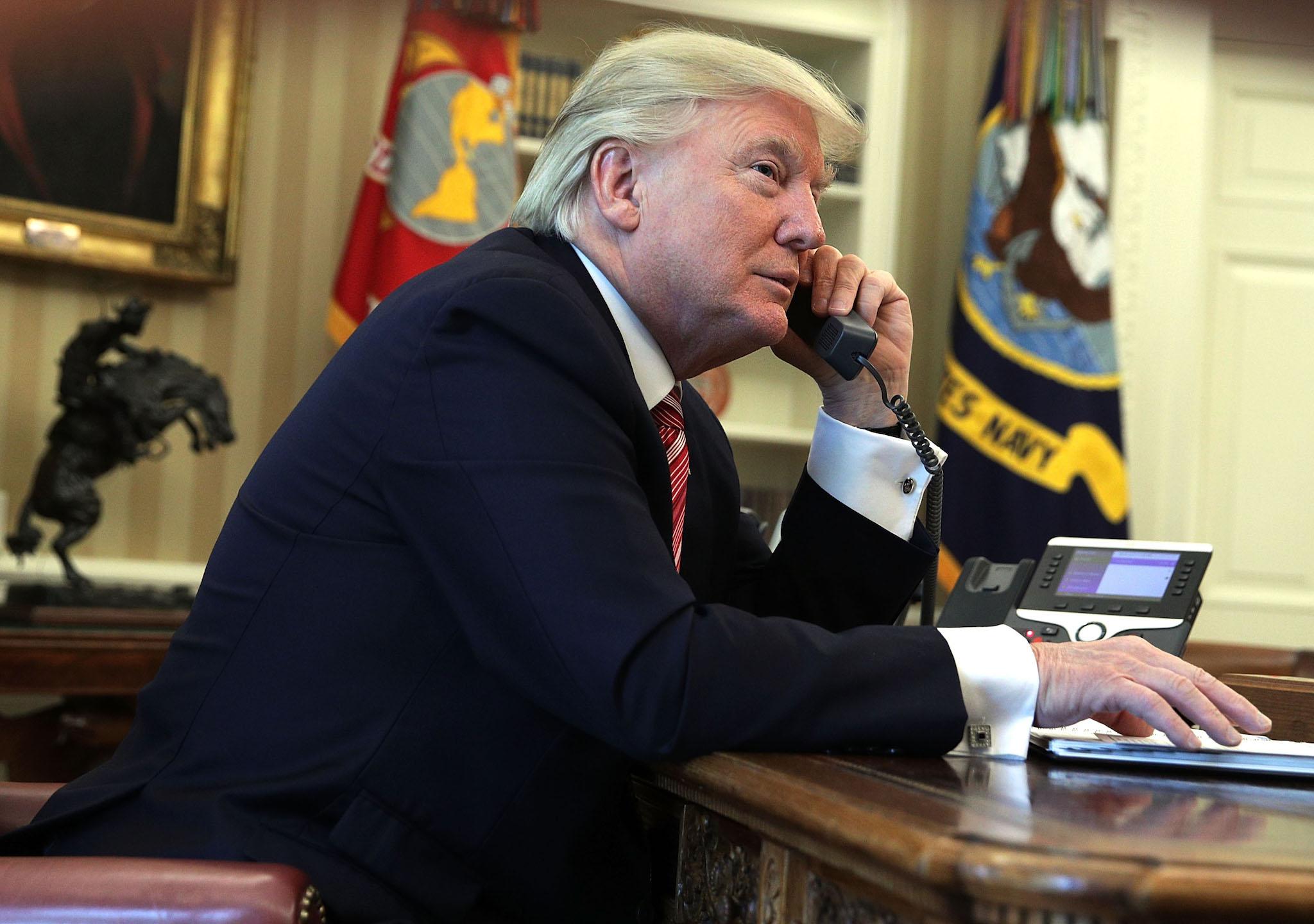Donald Trump's national security team considering building new 5G phone network to avoid Chinese spies
The plan would make the internet faster – but also make it much easier for the government to spy on and control it

Donald Trump's team is looking to build its own phone and mobile internet network.
Building its own network of super-fast communications would allow the government to try and avoid the threat of China spying on US phone calls.
The plan is an ambitious way of bringing the new technology – which would make internet speeds far faster – to reality. But it's one that has been widely criticised, by companies and campaigners that argue that among other things it would allow for the internet to be far more easily surveilled and controlled.
Gadget and tech news: In pictures
Show all 25Others, such as the FCC chairman Arjit Pai, argued in a statement that the plan would disrupt plans for commercial companies to control the internet. "What government can and should do is to push spectrum into the commercial marketplace and set rules that encourage the private sector to develop and deploy next-generation infrastructure," he said in a statement.
A senior administration official, confirming the gist of a report from Axios.com, said the option was being debated at a low level in the administration and was six to eight months away from being considered by the president himself.
The 5G network concept is aimed at addressing what officials see as China's threat to U.S. cyber security and economic security.
The Trump administration has taken a harder line on policies initiated by predecessor Barack Obama on issues ranging from Beijing's role in restraining North Korea to Chinese efforts to acquire U.S. strategic industries.
This month AT&T was forced to scrap a plan to offer its customers handsets built by China's Huawei after some members of Congress lobbied against the idea with federal regulators, sources told Reuters.
In 2012, Huawei and ZTE Corp were the subject of a U.S. investigation into whether their equipment provided an opportunity for foreign espionage and threatened critical U.S. infrastructure.
Some members of the House intelligence committee remain troubled by security threats posed by Huawei and ZTE, according to a congressional aide.
Issues raised in a 2012 committee report about the Chinese firms have "never subsided," the aide said, adding that there was newer classified intelligence that recently resurfaced those concerns.
"We want to build a network so the Chinese can't listen to your calls," the senior official told Reuters.
"We have to have a secure network that doesn't allow bad actors to get in. We also have to ensure the Chinese don't take over the market and put every non-5G network out of business."
In Beijing on Monday, Chinese foreign ministry spokeswoman Hua Chunying said China prohibited all forms of hacking, but did not specifically address the 5G network security issue.
"We believe that the international community should, on the basis of mutual respect and trust, strengthen dialogue and cooperation and join hands in addressing the threat of cyber attacks," Hua told a regular news briefing.
Major wireless carriers have spent billions of dollars buying spectrum to launch 5G networks, and it is unclear if the U.S. government would have enough spectrum to build its own 5G network.
Furthermore, Accenture has estimated that wireless operators will invest as much as $275 billion in the United States over seven years as they build out 5G.
Last year, T-Mobile US Inc spent $8 billion and Dish Network Corp $6.2 billion to win the bulk of broadcast airwaves spectrum for sale in a government auction.
An AT&T spokesman said they could not comment on something they have not seen, and added, "Thanks to multi-billion dollar investments made by American companies, the work to launch 5G service in the United States is already well down the road."
Later this year, AT&T is set to be the first to launch mobile 5G service in 12 U.S. locations, the spokesman said.
A Verizon spokesman declined to comment. Representatives for Sprint and T-Mobile did not immediately respond to requests for comment.
Another option includes having a 5G network built by a consortium of wireless carriers, the U.S. official said.
"We want to build a secure 5G network and we have to work with industry to figure out the best way to do it," the official said, speaking on condition of anonymity.
Axios published documents it said were from a presentation from a National Security Council official. If the government built the network, it would rent access to carriers, Axios said.
A looming concern laid out in the presentation was China's growing presence in the manufacture and operation of wireless networks. A concerted government push could help the U.S. compete on that front, according to the presentation.
A 5G network is expected to offer significantly faster speeds, more capacity and shorter response times, which could be used for new technologies ranging from self-driving cars to remote surgeries. Telecom companies and their suppliers consider it to be a multibillion-dollar revenue opportunity.
Additional reporting by agencies
Subscribe to Independent Premium to bookmark this article
Want to bookmark your favourite articles and stories to read or reference later? Start your Independent Premium subscription today.

Join our commenting forum
Join thought-provoking conversations, follow other Independent readers and see their replies